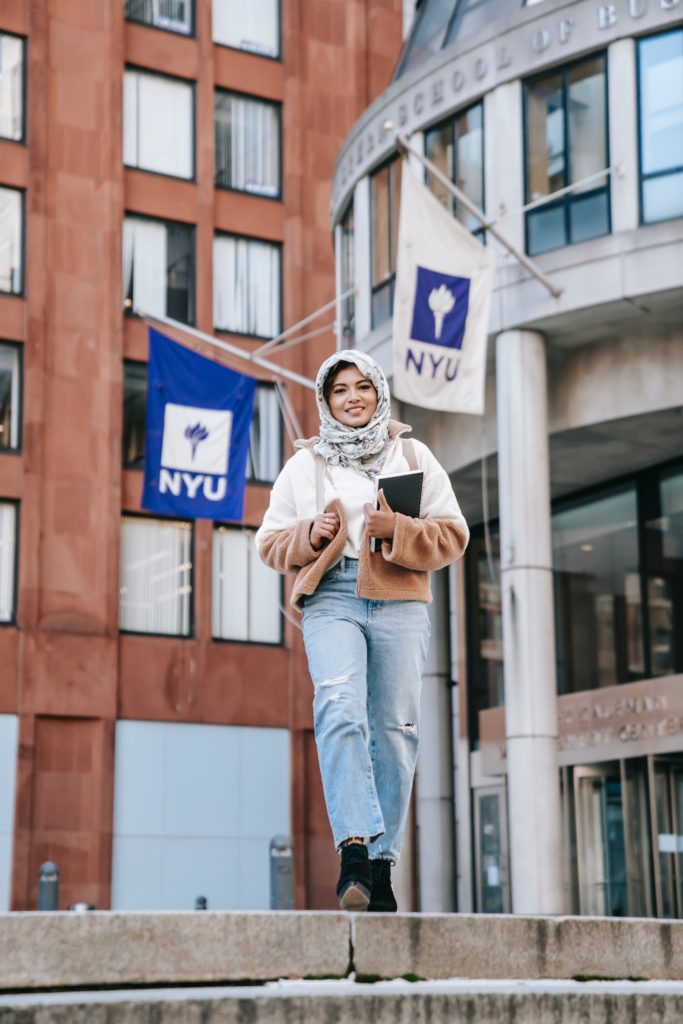Students who are not intending to make the United States their permanent home may apply for an F1 student visa. An F1 visa may be granted to a foreign national only if they can provide evidence that they have been accepted into a program or school in the United States. An F1 visa is required for a non-resident student to enroll in a university, college, seminary, conservatory, training program, or any other kind of academic institution. As long as you have an F1 visa, you are authorized to continue your education in the United States. Lets’ know more about Can F1 Students Have Passive Income.

The visa is good for five years after it expires, or for the length of your study (whichever is the shortest). To avoid deportation proceedings, you must renew your F1 visa before it expires if your degree demands it. If you have an F1 visa, you cannot work in the United States.
But in some cases, you might be able to work 20 hours a week at your school at a job that has something to do with your studies.
Is it possible for F1 students to earn passive income?
Because you aren’t working, the prevailing assumption is that earning passive money is perfectly lawful. It is legal to rent out a room, particularly if you hire a property management firm to handle it for you.
They collect the money, do any necessary repairs or upkeep, and deal with the renters. However, utilizing Airbnb to rent the accommodation would be problematic since you must obtain a Social Security Number (SSN) or face complicated tax consequences. If you are unclear about your circumstances, you’re recommended to contact a tax consultant for assistance with filing your taxes. You earned this money while in the United States, and you must report it by IRS regulations (Internal Revenue Service).
What work visa options are available to F1 students?
You need to know three distinct ways of earning passive income as an F1 student.
•Curricular Practical Training:
Curricular Practical Training (CPT) is a brief work authorization (or training) that is closely related to your academics. It might be paid or unpaid, and it’s common for students seeking academic credit to take part in such programs.
•Option Practical Training (OPT):
An OPT is a legitimate kind of work for an F1 visa holder while they are pursuing their school. You will probably work for a year while studying on an OPT.
There is a limit on the number of months you may work following graduation due to the time you spent on Optional Practical Training (OPT) (after you graduate).
•STEM OPT Extension:
Assume you’re a first-year student majoring in science, technology, engineering, or mathematics. In such a situation, you can be qualified for a STEM OPT, which is a 24-month extension on your OPT programs. You must apply for this extension before the end of your first OPT term.
Who Can Apply for an F1 Visa?
As with other immigration cases in the United States, only certain types of people are eligible for an F1 visa.
The four qualifying criteria that determine an applicant’s eligibility for an F1 visa are as follows:
•Admission to a recognized institution •Sufficient financial aid
•Resident of a foreign country with ambitions to return home.
What are the Restrictions for F1 Students?
After all, the major motive for immigrating to the United States is education, not money accumulation. However, you are authorized to work around 20 hours per week every semester.
This is to prevent you from falling behind in your studies and failing as a result of insufficient study time. Sequel to this, you will only take part-time work during your semester. And it will help you manage your time effectively.
Do not fear, you may make additional money while you are on vacation from school. When you’re on break, you can work for 40 hrs/week. In other words, you may work full-time throughout this time.
Conclusion:
Studying in the United States as a foreign student, sometimes, can be a difficult experience. And You really need to have financial plans, and you have to look for means to earn passive income.
It might be difficult to get a job while on an F1 student visa if you don’t know what legal constraints you must follow. There are, however, several passive income possibilities that may be of help to you.
Frequently Asked Questions;
1. While on an F1 visa, how may I work and make money?
You cannot work as a freelancer during your first year of study on an F1 visa. Only on-campus labor is permitted. You may utilize OPT after your first year of school to do freelance or self-employment work that is closely linked to your subject of study.
2. Is it possible to work online while on an F1 visa?
U.S. Citizenship and Immigration Services (USCIS) stated that foreign students with F-1 visas who want to apply for work authorization in conjunction with optional practical training (OPT) may now do so online. OPT refers to part-time work that is closely relevant to an F-1 student’s primary field of study.
3. Is it possible for F1 students to invest in stocks?
Trading stocks is permissible for international students with an F1 visa. In that regard, therefore, F1 students have the opportunity to trade stocks.
This is legal, and it falls under the umbrella of what is known as “passive income.” Stock trading cannot be considered a company or a profession.
